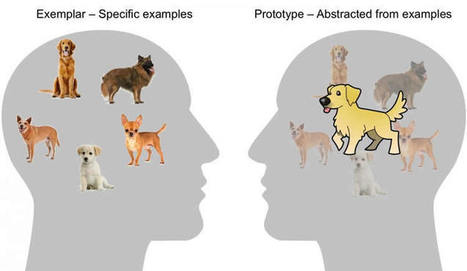A long debate has existed in psychology whether concepts, such as a dog, are represented in the mind as a collection of specific dogs that people have encountered or whether individuals can abstract the key characteristics across specific examples to form a generalized idea, or prototype, of a dog.
Without knowing all the dogs someone has seen before, it may be difficult to tell whether people can recognize a new animal as a dog because they rely on a comparison to specific dogs or rather their prototype.
Knowing more about the ability to build abstract memories, the researchers said, could help educators develop new strategies for teaching concepts.
In an experiment aimed to uncover how concepts are represented in the brain, 29 participants, ages 18-28, first viewed several novel cartoon animals as examples from two different concept categories whose members were related to families called Romeo or Juliet. Researchers then used functional MRI to watch the brains of participants as they viewed new, previously unseen cartoon animals and chose which family was the best match for each.
Responses revealed that participants must have formed and relied on abstract representations – the prototypes — of the new concepts, reported Caitlin Bowman and Dagmar Zeithamova of the UO’s Department of Psychology in the March 7 issue of the Journal of Neuroscience.
The fMRI data allowed them to follow processing across the brain as decisions were made. They documented activity in the anterior hippocampus and ventromedial prefrontal cortex that was consistent with a retrieval of the prototype rather than specific concept examples. This finding suggests the hippocampus — previously considered a filing system for specific memories of individual events — has a role in conceptual memory formation.
Via Miloš Bajčetić



 Your new post is loading...
Your new post is loading...








